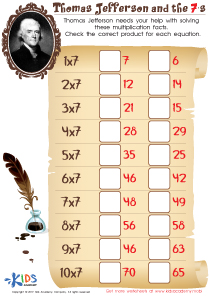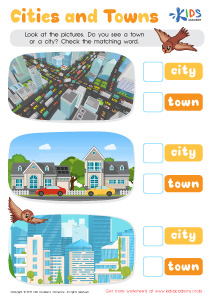Understanding citizenship Easy Social Studies Worksheets for Ages 6-7
3 filtered results
-
From - To
Explore the importance of citizenship with our engaging "Understanding Citizenship" worksheets designed specifically for ages 6-7. This resource introduces young learners to the fundamental concepts of being a responsible citizen, including community involvement, respect, and participation. Through vibrant activities and relatable scenarios, children will discover what it means to contribute positively to their society. Each worksheet encourages critical thinking and creativity, making learning about citizenship enjoyable and accessible. Ideal for classroom or home use, these easy-to-follow worksheets foster essential social studies skills while nurturing a sense of belonging and pride in being part of a community. Empower young minds with knowledge today!
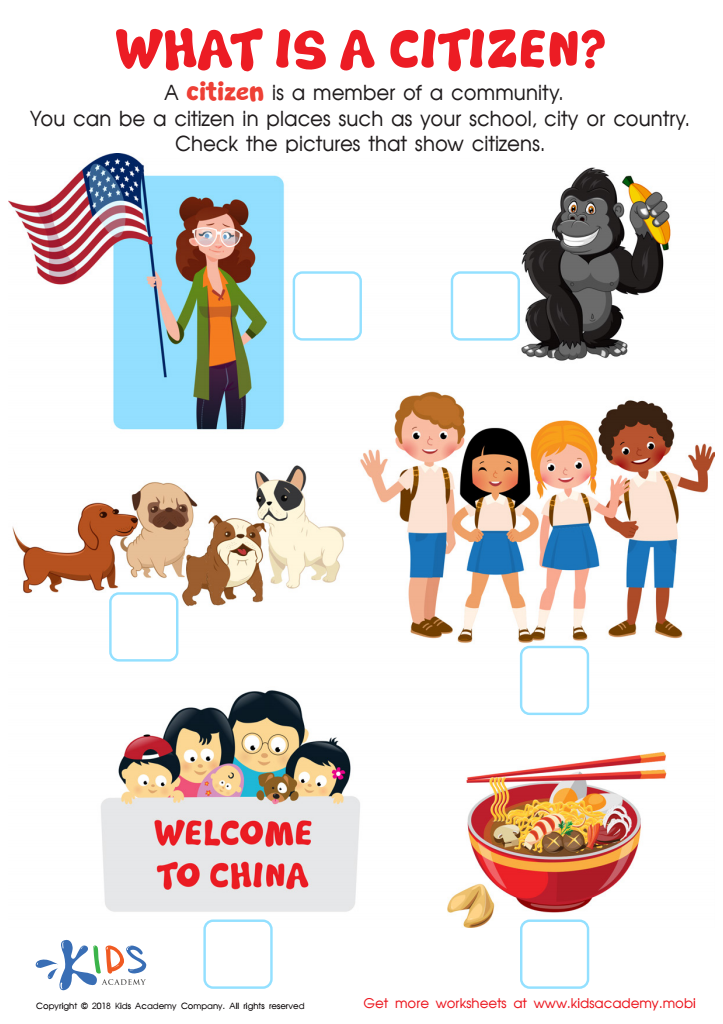

What is a Citizen? Worksheet
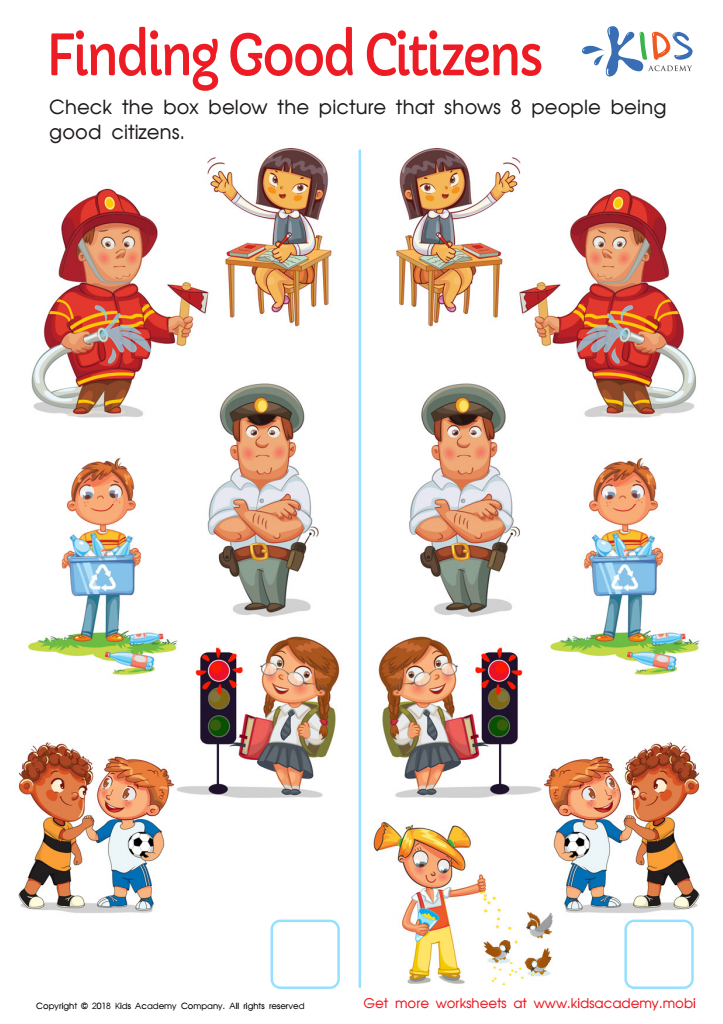

Finding Good Citizens Worksheet
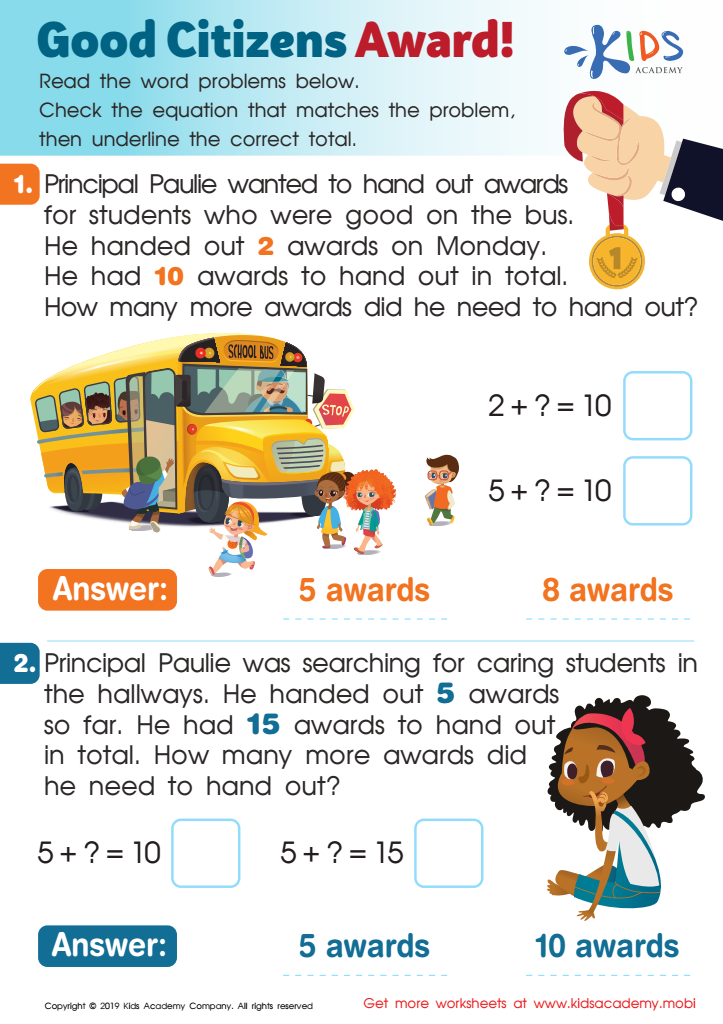

Good Citizens Award! Worksheet
Understanding citizenship is essential for children aged 6-7, and parents and teachers play a key role in fostering this knowledge. At this developmental stage, children are curious about their world, making it an ideal time to introduce foundational social studies concepts. Learning about citizenship helps young learners understand their rights and responsibilities within a community. It nurtures respect for others, promotes empathy, and encourages cooperation, which are vital skills for their social development.
Parents and teachers instill in children the importance of participation and civic duty. Engaging kids in discussions about their role as citizens, such as following rules, helping others, and making decisions collectively, start paving the way for responsible adulthood. This understanding also lays the groundwork for inclusive mindsets, teaching children to appreciate diversity and value different perspectives.
Moreover, as they learn about their community, society, and the broader world, children develop critical thinking and problem-solving skills. This educational approach promotes informed and active citizenship in the future. Therefore, by emphasizing the importance of citizenship education, parents and teachers not only enhance children’s academic knowledge but also contribute to shaping compassionate, informed, and engaged members of society.

 Assign to My Students
Assign to My Students











